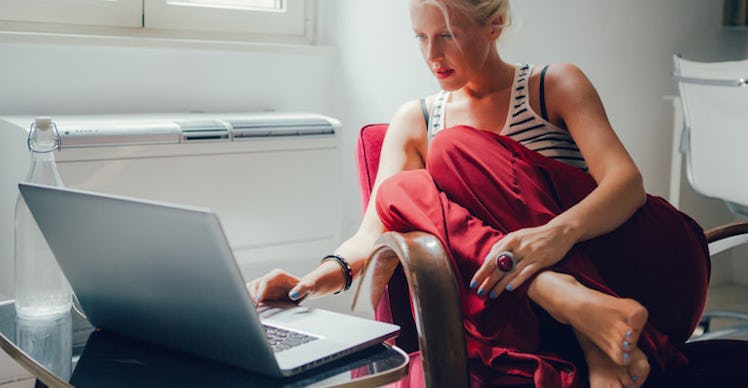
Is Dove's 'Choose Beautiful' Campaign Sending The Wrong Message?
Picture the scene: It’s the weekend; you have top dollar to spend, or you’re broke and bored.
Either way, you’re going shopping.
Walking up to the entrance of your local shopping center, you’re faced with two unusual signs that have 100 percent never been there before: One says "Beautiful" and the other says "Average."
Each word is placed above two separate doors.
Which one are you going to walk through? The one that shows what you see when you look in the mirror? Or, the one that’s publicly acceptable?
That was the setup for Dove’s latest marketing campaign. #ChooseBeautiful aims to empower women by letting them know it’s okay to think they’re beautiful. The company filmed women in five cities across the world, and the results proved to be pretty obvious.
Most women shunned "Beautiful" and headed straight through the "Average" door.
In fact, a recent survey by Dove found that 96 percent of women don’t choose the word "beautiful" to describe how they look, even though 80 percent recognize there’s something beautiful about them.
The video, currently watched over two million times, has received praise and criticism in equal measure. Yes, it’s good to let women know they’re far from average, but is it good to place so much emphasis on beauty?
Empowerment surely shouldn’t revolve around looks. What about brains? Emotional strength? Careers? These are all things beauty companies disregard.
After all, let’s be under no illusion: Dove isn’t trying to sell products here.
A promise of improving women’s intellectual self-esteem doesn’t sell skincare, but giving the impression a certain soap can increase physical self-esteem? Well, that’s the stuff CEOs dream of.
Cosmopolitan UK was invited to the filming of the London segment, and what they witnessed raises some further questions.
Any woman who appeared particularly hesitant or headstrong was asked to be interviewed. Unsurprisingly, a lot of them didn’t feel like explaining their decision on camera.
London’s men, however, were way more self-assured; the majority of them arrogantly strutted through the "Beautiful" doorway.
Speaking to the video’s director, Paul Dektor, Cosmopolitan found major differences between countries:
“Most of the women [in India] walked through the ‘Beautiful’ door. When we asked them what motivated the choice, they said that beauty in their country is defined as something that comes from within,” Paul commented.
Yet, British women, known for being over-modest (trust me, I’m from there), were more likely to take the "Average" route for fear of being labeled pretentious. Lyrics by UK band, The Streets, come to mind:
“You’re fit but my gosh, don’t you know it.”
Knowing you’re attractive is seen as a turn-off in most places. So, if some women embrace their beauty and others don’t, where does that leave us? Pitted against each other in a competition we didn’t choose to enter, and certainly not empowered.
The major thing about these campaigns – let’s face it, there’s a lot of them – that feels so wrong is the beauty industry’s incessant dictatorship.
It instructs us what to do, buy, think, say, etc. and pass it off as free will. Telling "average" people they’re cheapening themselves with this label is wrong.
Women should be allowed to form their own opinion of themselves. And, if they don’t want to call themselves beautiful, no one has the right to chastise them.
That may sound strange, but beauty is not everyone’s number one priority.
For some, being called beautiful may downgrade their actual achievements; it may make the accomplishments they’re truly proud of seem worthless.
Although Dove’s intentions were undoubtedly good, telling women how to feel and which words to use – even the correct door to choose — is less than helpful.
Beauty is a choice, but it’s not the be-all, end-all.